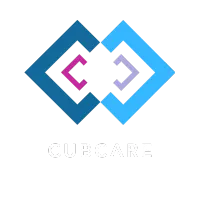We're an award winning Antenatal and Postnatal Education Platform 2025!
(read more here)
CubCare blogs.
From early pregnancy to newborn development.
Advice to help through pregnancy, birth and childhood.
BLOG
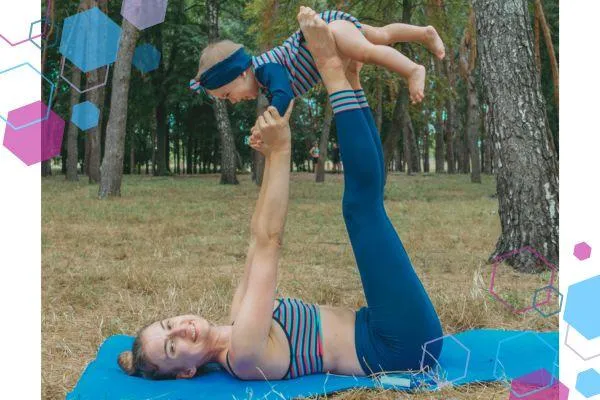
Baby's sensory development – vestibular system
"Aside from balance, vestibular stimulation also aids the development of your baby’s muscle tone, posture, coordination, space awareness, vision and eye movements, the inhibition of primitive reflexes, speech, hearing and language development!" - Jilly Clarke
How many senses does baby have? How many senses do WE have?
Did you know we have 8 senses? The usual 5 we all know about, sight, touch, smell, taste and hearing.
The sixth and seventh senses are the vestibular sense and proprioception.
And the 8th is something called introspection.
At birth, the senses of hearing, touch, smell, and taste are usually fully developed. Vision takes a while to develop in babies (see my blog post on vision here), and vestibular, proprioception and introspection also need to be developed as baby grows.
This blog post will be focusing on one of the two movement and body awareness senses, the vestibular system. Check out my blog post on the proprioceptive system here.
If you’d like to learn more about developing baby’s senses then our Baby Development online course gives you all the information for baby’s physical and mental development.
What is the vestibular system in a baby?
The vestibular sense, also known as the balance sense (although it does much more than that), is the awareness of your body is space. When we move, the fluid in our ears moves and stimulate tiny hairs in the inner ear. These hairs send the brain information, through the vestibular nerve, about where our body is in space.
The more a child is out of an upright position, and moving around, the more the fluid will move over the hairs, and the stronger the vestibular sense will become.
Babies and children need to put their bodies in all different positions and move them in all different directions to get that fluid moving.
Initially, babies struggle to do this themselves and rely on a caregiver. Seeking contact, to be held, moved, and rocked is a natural in-built need for baby. Not to only get comfort, but to also help to develop their vestibular system.

What does the vestibular system do?
Aside from balance, vestibular stimulation also aids the development of your baby’s muscle tone, posture, coordination, space awareness, vision and eye movements, the inhibition of primitive reflexes, speech, hearing and language development!
When developing through their milestones, babies need to learn to coordinate their body and maintain balance. This is done by developing muscle strength, but the vestibular system plays a very important role too. Feeling off balance can trigger the body to engage muscles and work to maintain balance.
Activities such as crawling, cruising furniture, sitting upright, reaching for a toy all use information from the vestibular system.
Having a sense of balance will help them to feel stable and secure when bending down to pick up a toy, or trying those first tentative steps.
As they get older, activities such as swimming and walking involve bilateral coordination and the vestibular system helps to maintain stability in the body.
The same is also true for keeping the head and body still for activities such as reading or watching television.
Even eating requires an engaged vestibular system to keep the body stable whilst reaching, or cutting, or chewing, or moving food from plate to mouth.
When is the vestibular system fully developed?
The vestibular, alongside the other senses undertake huge development within the first year of babies life. Whilst other senses are quicker to fully develop, the vestibular system isn't able to fully mature until nearer adolescence.
During the first year, baby's vestibular system plays a crucial role in understanding themselves and the world. And the vestibular system is vital to help with the important gross motor developments such as crawling, cruising and walking as well as relating to the world around them.
How can I help develop the vestibular system?
Any activity that gently and safely rocks, rolls, tumbles, bounces, swings and spins your baby provides him or her with vestibular stimulation.
The progression of sitting to crawling to toddling to running during first 15-18 months is a crucial time for developing the balance sense.
All the moves we do in class help to stimulate the vestibular system with a bonus of being really fun!
Inversion moves, where baby goes upside down takes vestibular system development up another level.
The internal shift of their internal compass helps develop the vestibular and proprioceptive systems, helps ease congestion, eases tension and a rush of blood to the head is good for the brain as well as the heart!
Babies and children will often seek out movements and positions that challenge their balance and work their vestibular system.
The strange twisted, upside down or round and round moves and positions they do are all naturally designed to help develop their vestibular sense.
The lists below can give you a rough guide for activities you can do to provide vestibular input.

0-6 months – vestibular activities
Vestibular activities
Babywearing – the constant movement will provide wonderful vestibular input
Rocking/dancing/cradling
Baby massage and yoga
Change their position often including tummy, back, upright and side lying time
Limit time spend in containers e.g. car seat, bouncer chair or swing to two hours a day maximum where possible. These containers often have baby in a semi-reclined position, limiting their vestibular input.
6-12 months – vestibular activities
Lots of floor time – encouraging rolling
Supported tummy time on an exercise ball, rolling them around and encouraging them to reach their hands to the floor
Swinging in parents arms or on an outdoor swing
Baby yoga and movement play
Songs like Row, row, row your boat or I’m a little teapot. To move them around from an upright position
12-24 months – vestibular activities
Baby/toddler yoga
Wheelbarrow walking
Dancing – lots of silly movement songs
Sitting and bouncing on an exercise, or large football
Mini-trampoline with handle
Walking/rolling on grass with gentle slopes
Playing on soft play equipment/creating an obstacle course at home
Playing on slides and swings at the park
If you are ever concerned about baby’s development then talking with your Health Visitor, GP is never a bad idea. All babies develop at their own pace, however, if you notice that their development is not progressing as expected and you are concerned then there are people who are there to help you.
We run baby classes that are perfectly designed to help with baby's sensory development. Currently running in Welwyn Hatfield, Hertfordshire.
Baby Classes in person, in Welwyn Hatfield
We also offer a range of baby development and parenting workshops that are completely on-demand, online.
Baby Development Course online
Easily navigate to our most popular Blog categories
Download our Freebies
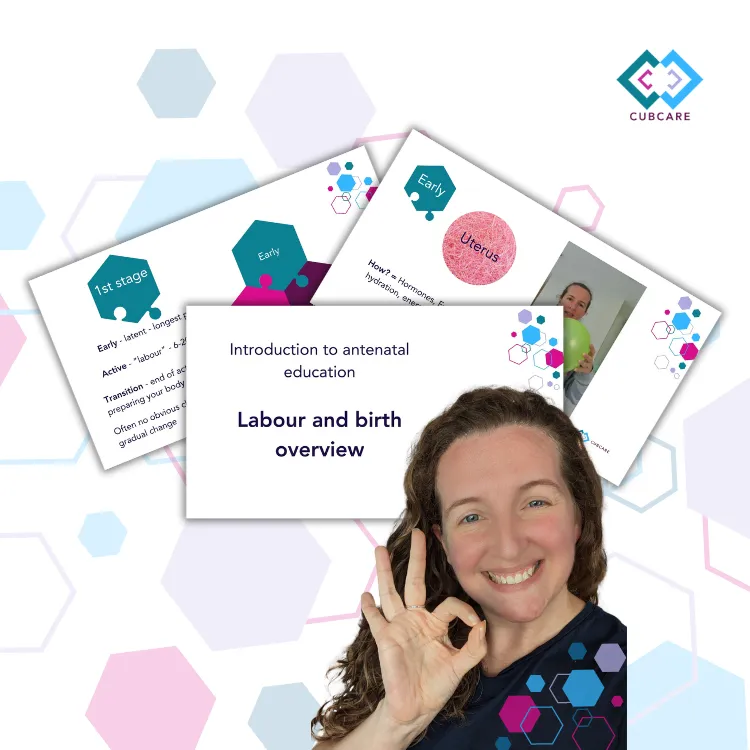
Labour and Birth
Watch our introduction to antenatal education webinar, our labour and birth overview - to start your antenatal education journey. Understanding the process, and what you can do to influence it.

Pregnancy Planner
Free Pregnancy Planner to help you prepare for a little one. Prepare your body, your mind, your finances and your home. Get organised, feel good and prepare for an active, positive birth.
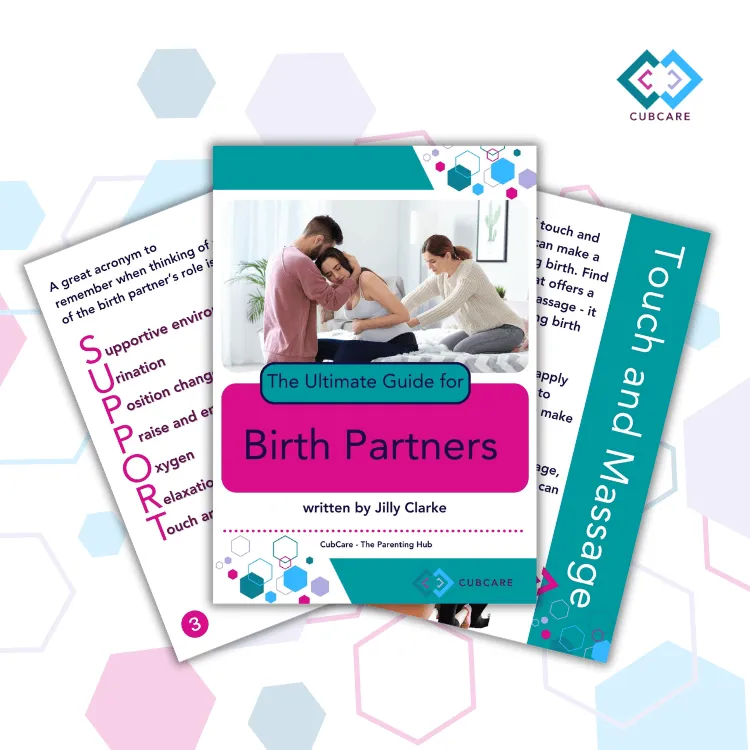
Birth Partner Guide
Your ultimate guide to being the best birth partner during pregnancy, birth and recovery. Learn what you need to do, and what you need to learn to be the best birth partner possible.
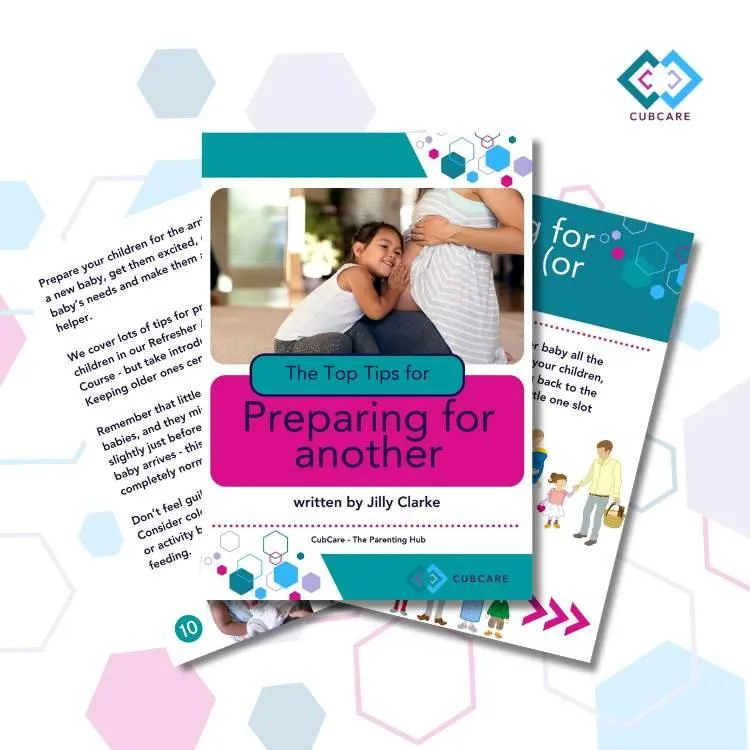
Expecting Again Guide
Your ultimate guide to preparing for another birth and an extra baby. Our top tips for navigating pregnancy and birth, and helping your older ones to transition into their new role as a big sibling.
Based in Welwyn Hatfield, offering local pregnancy support and doula services across Hertfordshire: St Albans, Hatfield, Welwyn Garden City, Potters Bar, Stevenage, Harpenden, Hitchin, Barnet, Mill Hill and surrounding areas.
Online antenatal and postnatal education available UK-wide.
© Copyright 2025 CubCare The Parenting Hub. CubCare is operated by The Birth and Baby Company Ltd. Company No. 15655287
Privacy Policy | Terms & Conditions | Medical Disclaimer | Inclusivity and Accessibility
